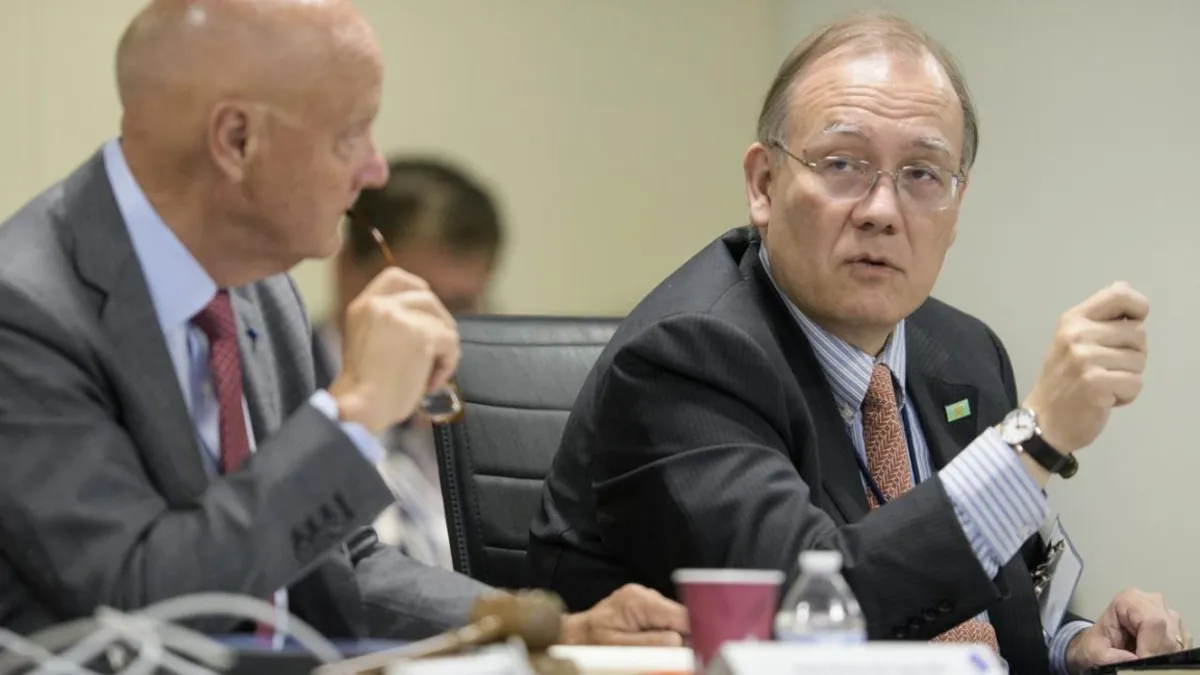
The future of NASA's Space Launch System (SLS) program appears uncertain as significant policy shifts emerge. On Wednesday, a prominent Republican space policy leader, previously known for opposing commercial heavy lift rockets as alternatives to NASA's SLS, announced a change of heart. Scott Pace, director of the Space Policy Institute at George Washington University, expressed the need for reducing reliance on SLS in written testimony. This statement came ahead of a hearing on US space policy and NASA's Artemis Moon program, organized by a subcommittee of the House Committee on Science, Space, and Technology.
Pace, a seasoned physicist and influential policy expert, has an extensive history in space policy, having served in multiple Republican administrations, most recently as executive secretary of the National Space Council from 2017 to 2020. Initially, he was a strong advocate for the SLS, following Congress's directive for NASA to develop it in 2011. However, he now suggests that NASA should consider commercial heavy lift services to transport payloads to the Moon, matching the performance of the SLS Block 2, which can handle up to 45 metric tons to trans-lunar injection.
Pace acknowledged the changes in the industry, noting the availability of heavy lift options from companies like SpaceX, Blue Origin, and United Launch Alliance. He recommended that NASA leverage commercial providers for heavy lift launches to enable multiple crew and cargo missions to the Moon annually. He criticized the SLS for its lack of reusability and limited flight rate, having only managed one flight and struggling to meet the congressional target of two 'cores' per year.
Pace's comments are particularly noteworthy given his historical support for traditional space policy and his role as a key architect of the Artemis program during the first Trump administration. He emphasized the necessity of incorporating commercial space technologies for a sustainable lunar program. He called for a revised Artemis campaign plan to be a top priority for the new NASA Administrator, despite potential challenges with industry and international partners. According to Pace, it's crucial to pursue a more sustainable and credible approach to space exploration.
As part of his policy recommendations, Pace suggested that NASA innovate more and use traditional programs only as a last resort to justify its budget and seek additional resources. He proposed considering options like ending the International Space Station's life before 2030 due to its age and increasing anomalies. Furthermore, Pace highlighted the importance of targeting both the Moon and Mars, envisioning a future where lunar settlements resemble Antarctic research stations and eventually transform into entirely new communities.
While acknowledging the massive technical, economic, and biological uncertainties, Pace expressed excitement about the vision of becoming a multi-planetary species. He believes that a human landing on Mars might not be feasible in the next five years, but a human flyby or the return of Mars soil samples could be possible. The long-term goal should be the sustainable development of spaceflight activities and human expansion into the Solar System, with Mars serving as a symbol for broader, indefinite objectives for America’s future.